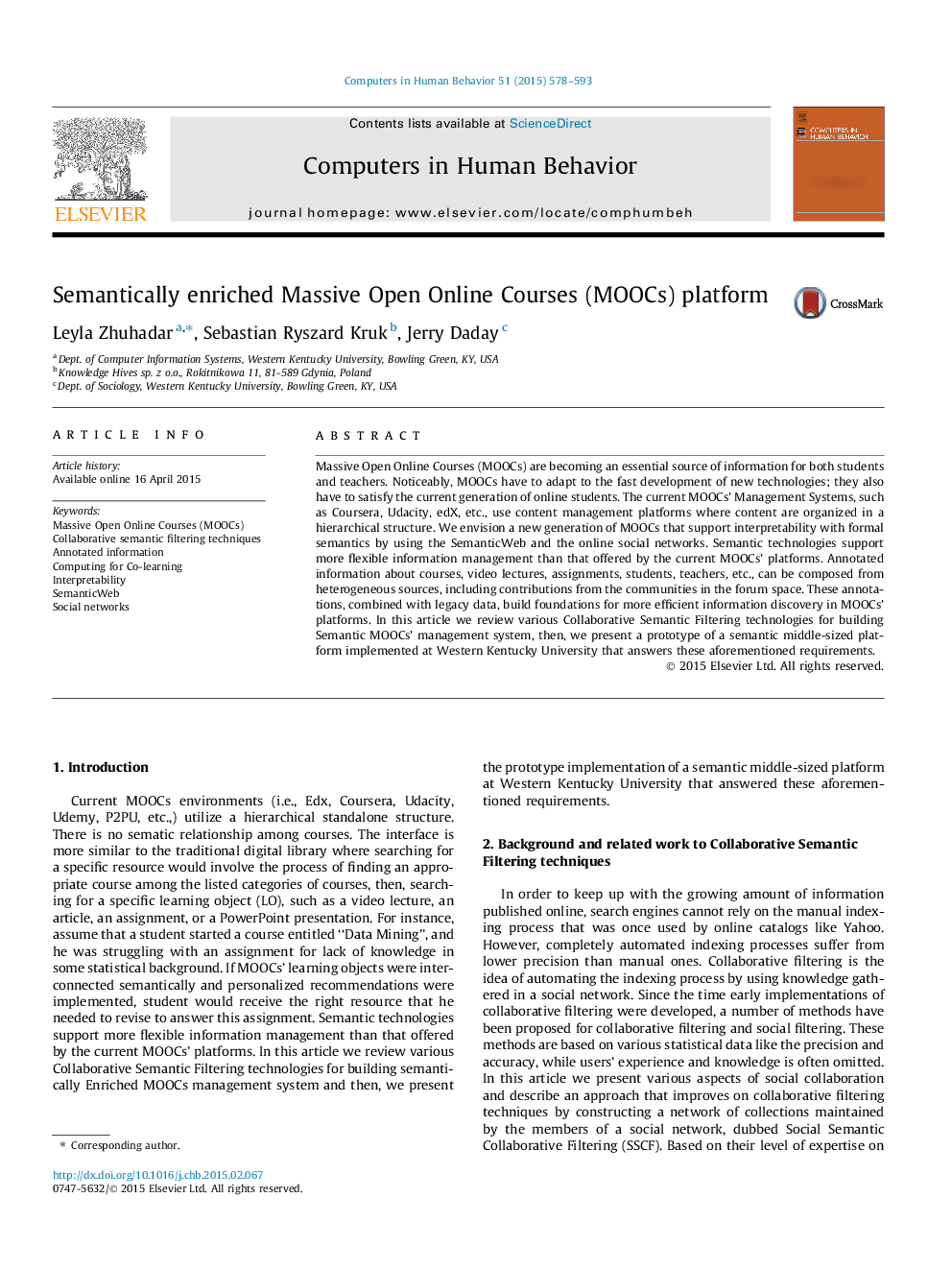| Article ID | Journal | Published Year | Pages | File Type |
|---|---|---|---|---|
| 10312596 | Computers in Human Behavior | 2015 | 16 Pages |
Abstract
Massive Open Online Courses (MOOCs) are becoming an essential source of information for both students and teachers. Noticeably, MOOCs have to adapt to the fast development of new technologies; they also have to satisfy the current generation of online students. The current MOOCs' Management Systems, such as Coursera, Udacity, edX, etc., use content management platforms where content are organized in a hierarchical structure. We envision a new generation of MOOCs that support interpretability with formal semantics by using the SemanticWeb and the online social networks. Semantic technologies support more flexible information management than that offered by the current MOOCs' platforms. Annotated information about courses, video lectures, assignments, students, teachers, etc., can be composed from heterogeneous sources, including contributions from the communities in the forum space. These annotations, combined with legacy data, build foundations for more efficient information discovery in MOOCs' platforms. In this article we review various Collaborative Semantic Filtering technologies for building Semantic MOOCs' management system, then, we present a prototype of a semantic middle-sized platform implemented at Western Kentucky University that answers these aforementioned requirements.
Related Topics
Physical Sciences and Engineering
Computer Science
Computer Science Applications
Authors
Leyla Zhuhadar, Sebastian Ryszard Kruk, Jerry Daday,
